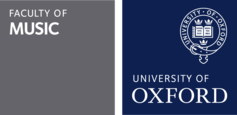Graduate Research Colloquium: Professor Ian Pace (City, University of London)
Academic Music in the United Kingdom and the Dalliance with Practice

Free to attend, those wishing to attend virtually should complete this sign-up form to receive the weekly Zoom links.
Traditionally there was a relatively clear distinction in the types of study available at tertiary level. On one hand there were the universities, which provided a broad holistic framework for studying music, typically involving such areas as historical study, theory and analysis, aesthetics and the study of plural musical cultures. Practice, in the form of composition and some aspects of established performance, would play a part but not be at the centre of such study. On the other hand there were the conservatoires, with a different model (at least since the establishment of the Paris Conservatoire in the 1790s, leading to the founding of a whole range of other institutions of a similar nature) for which practice was undoubtedly at the centre, focused upon the training of professional musicians.
In the United Kingdom since 1945, the period which saw the principal growth of music as a university subject to be studied at undergraduate level, the picture has for some time been more complicated, and has become increasingly so in recent decades. The relationship between academic study and both practice and the humanities was always less clearly defined than in Germany and the United States in particular, and went hand-in-hand with a certain ‘gentleman amateur’ distrust of highly rigorous and systematic scholarship. With the establishment of the Research Assessment Exercise (RAE) in 1996, becoming the Research Excellence Framework (REF) from 2014, a good deal changed. Now scholars were held to more exacting and explicit criteria for assessment of their research, such as some leading musicologists of earlier generations might have struggled to fulfil, but also over a period the exercise adopted various criteria to enable a variety of practitioners to submit, not only composers but also performers, sound artists, some involved in studio work, and others. At the same time, more and more conservatoires moved towards their primary offering being in the form of full undergraduate degree programmes (rather than performance courses and graduate diplomas, as was earlier the norm), and so they in turn were required to engage more consistently with academic music in order to satisfy regulatory standards for such degrees.
On the basis of recent detailed research into the UK music higher education sector from 1945 to the present day, I trace this development, alongside other developments such as the major growth of courses in commercial music, music technology and musical theatre in the period following the 1992 Further and Higher Education Act. At the time of writing, these degrees account for the majority of music degrees in the sector, and as such often require a high degree of teaching input from active practitioners. I consider the conflicts this creates with the demands of REF, and question whether this model of undergraduate provision is really compatible research-centered departments, at least as research is defined by the REF.
I examine critically models such as John Butt’s conception of the ‘Kapellmeister’ assumptions behind a music degree, and also draw upon the ongoing debates on the value of practice-research and artistic research, to which I have contributed. I also provide detailed data on faculties and course contents to examine the conflict between a focus on practice and the future of musicological scholarship. In this context, I argue that there are now ‘two cultures’ in academic music departments, one founded upon humanities-style critical study of music, another linked to practice and embodying a new ‘aesthetic economy’, by which academic employment provides the primary means of sustenance for a range of practitioners, especially in new music. Such practitioners generally have careers and reputations outside of universities, in which the demands of dispassionate critical thinking are by no means necessarily paramount, compared to those of self-promotion and self-fashioning for the purposes of winning favour. I invite others to consider the implications and dangers of a situation whereby the research expertise of practitioners in academic music departments can be quite radically at odds with the types of musical work which has been demonstrated to attract students. I conclude with an appeal that musicology is not marginalised as a result of increasing practical focus in degree courses, and offer some thoughts on ways in which musicologists can act to ensure the survival of their discipline.
Professor Ian Pace combines careers as an internationally renowned pianist and a musicologist. He has given over 300 world premieres, played in 25 countries, and recorded over 40 CDs. Amongst the composers who have written works for him to premiere are Gilbert Amy, Julian Anderson, Richard Barrett, James Dillon, Pascal Dusapin, Brian Ferneyhough, Michael Finnissy (with whom he is closely associated, and whose complete piano works he performed in 1996 and 2016), Volker Heyn, Hilda Paredes, Horatiu Radulescu, Frederic Rzewski, Gerhard Stäbler, Yuji Takahashi and Walter Zimmermann. In 2022 he gave a cycle of concerts in London featuring all nine Beethoven symphonies in the transcriptions for solo piano by Franz Liszt. He is also Professor of Music and Strategic Advisor (Arts) at City, University of London, where he has worked since 2010, having previously worked at the the University of Southampton and Dartington College of Arts. He studied at Chetham’s School of Music, The Queen’s College, Oxford, and as a Fulbright Scholar at the Juilliard School, with Hungarian pianist György Sándor, later taking a PhD at Cardiff University on the reemergence of an infrastructure for new music in occupied Germany. His research encompasses historical and analytical musicology (especially relating to new music and music in Germany), as well as the study of performance practice, modernist aesthetics, music and culture under fascism, critical musicology, ethnography and autoethnography and music education. He has published widely on all these issues in both academic and wider outlets. Recent recordings have included the complete piano music of Brian Ferneyhough, the complete piano music of Sam Hayden, and discs of Volker Heyn, Horatiu Radulescu and Michael Finnissy.
About the series:
The Colloquia feature leading figures, as well as younger scholars, from across the world. They present their research in papers on all kinds of music-related topics. Graduate students Chuyu Zhang and Eugenie Dalgleish organise the series. Presentations are followed by a discussion and drinks reception. If you would like more information, please email Chuyu Zhang.



